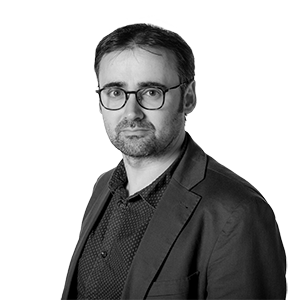Leo Beenhakker, one of the stars of Barça's Tenerife Premier League campaign, dies.
He died at 82, he was the coach of Real Madrid's 'La Quinta del Buitre'


BarcelonaFootball coach Leo Beenhakker passed away today at the age of 82. The Dutchman was fortunate enough to manage some of the world's finest players for over four decades, during which he earned a reputation as a lover of attacking football and a polite person, respected even by his opponents. He had been suffering from an illness in recent months and had not managed a team for a long time. Don Leo, known for his fondness for cigars, witnessed firsthand the end of a golden era at Madrid and the birth of the best Barça.
Beenhakker left a great memory for Real Madrid in the late 1980s, when he was managing the club known as "Vulture's Estate" won three leagues in a row, from 1986 to 1989. A team that was fed up with scoring goals and winning titles, although it was never able to raise its great objective, the European Cup. Don Leo It would be talked about when he faced Butragueño, the star of The Vulture's Farm i. On March 15, 1989, Madrid had the second leg of the European Cup quarter-finals against PSV Eindhoven, and Beenhakker decided to leave Butragueño on the bench despite the first leg being a 1-1 draw. There was no injury; it was a technical decision. Madrid would qualify thanks to a 2-1 win, but the news of the night would be Butragueño's substitution, playing only five minutes of that match against a Santiago Bernabéu that never tired of demanding his presence on the pitch. Arrigo Sacchi's Milan would thrash Madrid in the semi-finals that year, with a famous performance at San Siro in which they won 5-0. Beenhakker left Madrid after that defeat, as he had an offer to manage the Dutch national team. But in 1992, he returned to Madrid when Ramon Mendoza asked him to, as he had been born on Dream Team Johan Cruyff's Barça. The Dutchman took Radomir Antic's place in the 1991/92 season, without any luck. In fact, he was one of the players who suffered when Barça lost the first league title in Tenerife. The Dutchman was on the bench at the Heliodoro Rodríguez López stadium for Tenerife's comeback (from 1-2 to 3-2) against Real Madrid on June 7, 1992. This, coupled with Barça's 2-0 win over Athletic Club in the second leg, was a significant achievement.
The Dutchman, born in Rotterdam in 1942 during the Nazi era, played for various regional teams, but a serious injury at the age of nineteen ended his dreams. So he began a career in coaching, where he would make his fortune. Beenhakker, who had suffered financial hardship as a youngster due to the death of his father, began working for smaller clubs like SV Epe, combining that job with working as a shop assistant in a clothing store. His first opportunity as a coach came with Veedam in 1968, just as Dutch football was experiencing the Total Football revolution, with the great Ajax as its standard. It was with Ajax that he would have his first big opportunity to manage a major team, being involved in an incident with Johan Cruyff in 1980. Cruyff was then playing the last games of his career in the United States, but it was Amsterdam to watch a match against Twente. Ajax weren't doing very well and were losing 3-1, which Cruyff took advantage of by going down to the bench without Beenhakker's permission. He sat down in a chair next to him and began giving orders. Ajax won 5-3. "I should have punched him twice," Beenhakker would explain years later about that moment. With Ajax, he also reached the semifinals of the European Cup in 1980, giving debuts to players like Frank Rijkaard. To this day, he is the only coach to have won the Eredivisie with both Ajax and Feyenoord. He has also managed clubs such as Volendam and Vitesse, Grasshopper in Switzerland, Mexico's América and Guadalajara, and Istanbulspor in Turkey.
His strong performances at Ajax allowed him to make the leap to the Dutch national team just as they were experiencing a period of generational renewal, but he failed to qualify for the 1986 World Cup and moved to Madrid. He would return to the national team to manage the 1990 World Cup, where he would have no luck. Years later, he would manage another World Cup in 2006, with Trinidad and Tobago.
